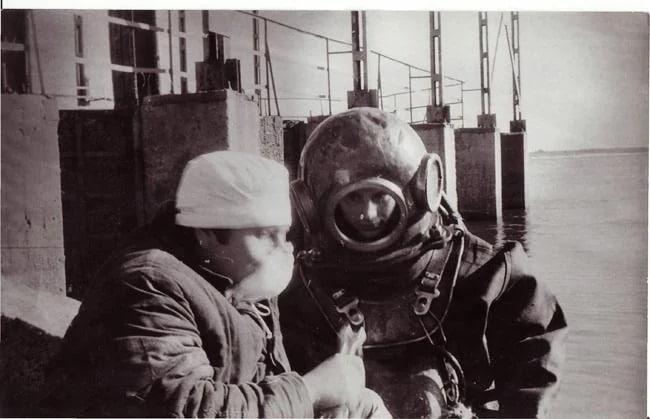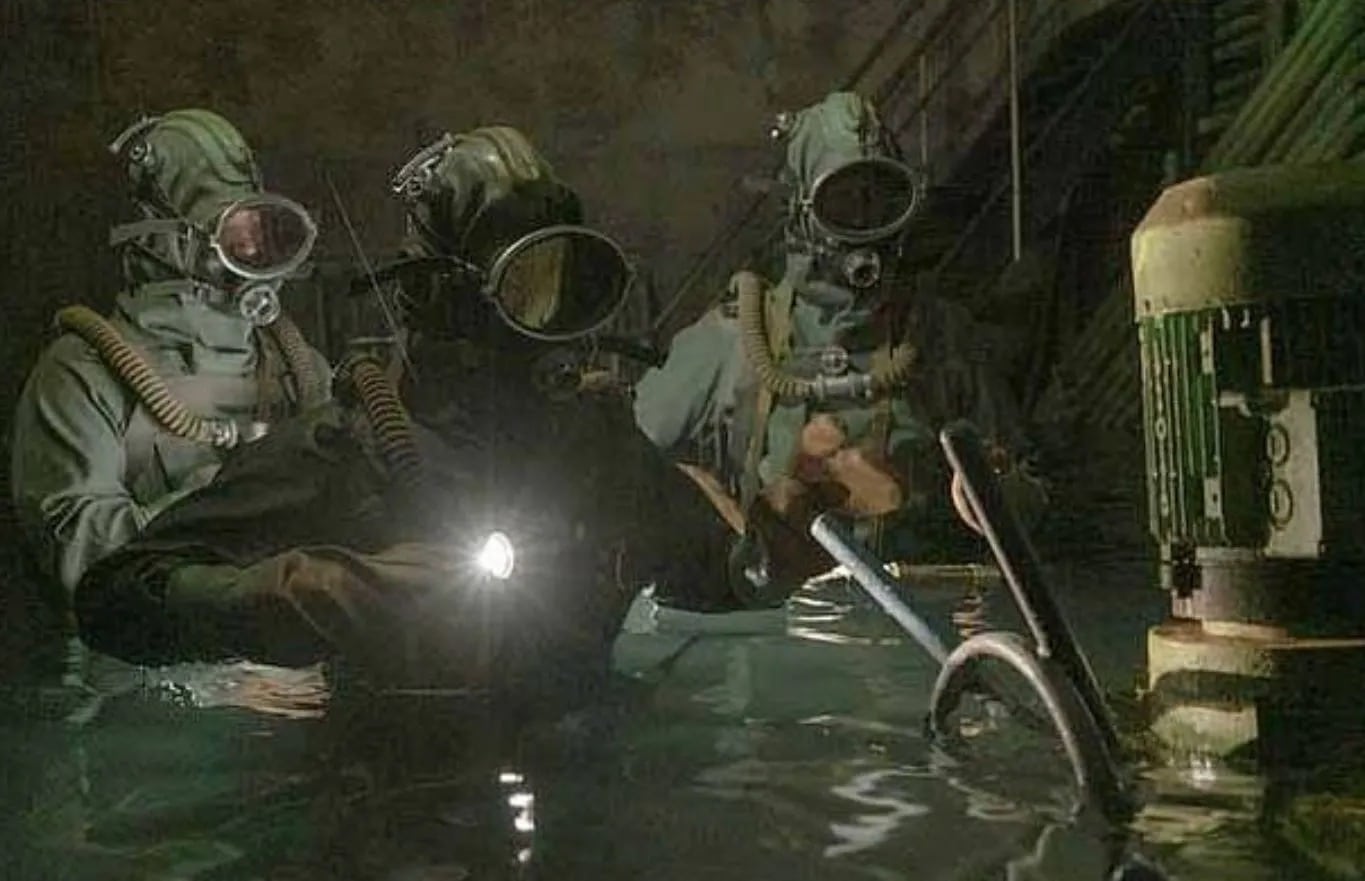In history, there are tales of extraordinary bravery, of individuals who faced the gravest of dangers to safeguard others. Among these tales, one stands out with stark poignancy—the story of the Chernobyl divers.
It was the year 1986 when the world held its breath as Reactor 4 at the Chernobyl Nuclear Power Plant unleashed a catastrophic meltdown.
Amidst the chaos and devastation, three unsung heroes emerged: Alexei Ananenko, Valeri Bezpalov, and Boris Baranov.

One of the divers readying himself in his gear.
Who Were The Chernobyl Divers?
Before their fateful dive into the depths of darkness, they were ordinary men, working at the Chernobyl Nuclear Power Plant.
Little did they know that destiny would summon them for a task that would etch their names in history.
Here are the bios of these three men:
Alexei Ananenko
- Position: Mechanical engineer
- Bio: Born in 1962, Alexei had worked at Chernobyl for a considerable period before the disaster occurred. His deep understanding of the plant made him an indispensable member of the three-person diving team.
Valeri Bezpalov
- Position: Senior Engineer
- Bio: Born in 1955, Bezpalov brought invaluable experience to the crucial diving mission. His extensive familiarity with the plant’s systems and structures proved instrumental during their underwater endeavors.
Boris Barnov
- Position: Shift Supervisor
- Bio: Boris Baranov, the shift supervisor on duty when the meltdown struck, emerged as one of the pivotal leaders amidst the Chernobyl disaster. He bravely faced his responsibilities, actively participating in the cleanup efforts and diving mission without hesitation.
Why Were the Chernobyl Divers Needed?
In the early hours of April 26, 1986, the world witnessed a tragedy of unprecedented proportions unfold at the Chernobyl Nuclear Power Plant.
Reactor 4 succumbed to a critical meltdown, unleashing a cascade of explosions and fire that plunged humanity into a nightmare.
As the flames engulfed the reactor, firefighters battled the blaze, their efforts inadvertently flooding the basement. Unknown to them, the reactor’s core was burning through the floor towards massive coolant pools.
These pools, filled with nearly 20 million liters of radioactive water, posed a grave threat. If the core breached them, a devasting explosion would follow, destroying the plant and spreading tradition far and wide, like an explosion estimated to be severe enough to destroy half of Europe. It would cause it to be uninhabitable for 500,000 years or more.
In the chaos, three brave men, Alexei, Boris, and Valeri, stepped forward. Despite the danger, they ventured into the flooded basement.
They dressed in only wetsuits and carried flashlights. The water reached up to their knees, but the darkness proved more challenging.
However, they still continued as they knew that their mission was to find and open valves that would drain the pools, averting catastrophe.
Minutes went by, and hope started fading until one of the men saw a pipe they could follow. At the end, they found what they needed: the drainage valves. They turned them, and the pools under the reactor started emptying.
They had succeeded. They stopped an explosion that could have made the Chernobyl Disaster even worse.

The divers as depicted in the HBO series, Chernobyl
Did the Chernobyl Divers Survive?
Before entering the basement, all three divers knew they might not make it out alive. They were prepared to face Acute Radiation Syndrome (ARS), the same sickness that had claimed the lives of other Chernobyl workers.
Remarkably, all three divers survived in the long run.
In 2018, they were honored with the Order For Courage by Ukrainian President Petro Poroshenko. Sadly, Boris Baranov had passed away in 2005 from a heart condition, receiving the award posthumously.
So, how did they survive?
Several factors played a role. Surprisingly, the water in the basement absorbed a lot of the radiation, reducing its danger. Additionally, their protective suits offered some defense against radiation. Lastly, they worked quickly to minimize their exposure to radiation.
Despite the danger, their expertise and these factors helped them survive one of the most perilous tasks during the Chernobyl disaster.


